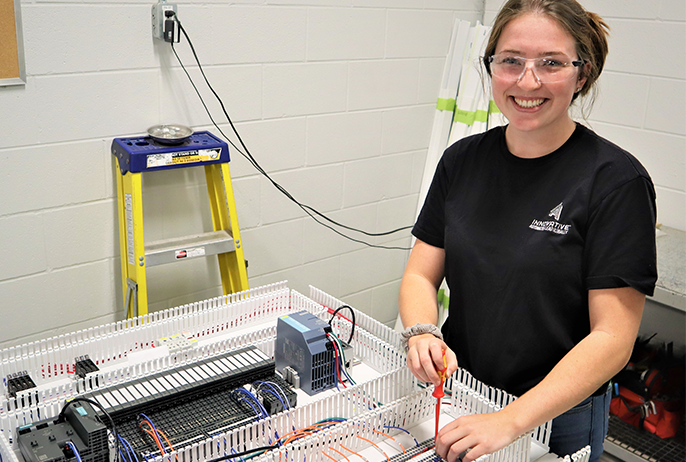Is Co-op Important for Students?
Why Co-op Could Be the Most Valuable Part of Your Education
If you plan to take electrical engineering or computer science, co-operative education (co-op) could be the most valuable part of your post-secondary education as you move on to your career.
Co-op is your opportunity to gain real-world work experience in your industry. If your program includes it, you can use Lakehead University and Georgian College’s networks to find a work placement that will earn you credit toward your graduation, and experience to help you land that first job when you graduate.
Co-op in the Bachelor of Engineering (Electrical) program
Electrical engineering students can choose to participate in a co-op option between the third and fourth year of study. At this point in the program, students are comfortable with electrical engineering fundamentals and gaining experience with more advanced techniques and systems, and can use the co-op to learn more about where their own interests might take them in the future.
Co-op in the Honours Bachelor of Science (Computers) program
Students in computer science benefit from one co-op work term integrated into the summer following the second year of study. Students will have access to job postings through Georgian College that aren’t typically available to less experienced programmers. That means early, paid workplace experience that helps students move forward in the program as they return to school every fall. Students will have learned new skills and maintained fundamentals that will help them continue as the program becomes more challenging. In addition, co-op will allow students to experience the reality of a real-world job search in the computer science field.
How is co-op different from my in-class learning?
Lakehead-Georgian instructors work hard to give students a range of experiences, from classroom instruction where you learn the why, to lab instruction where you learn the how.
There is, however, no substitute for work experience, when your goal is to get a job upon graduation.
You get to see how experienced professionals in your chosen field of work spend their days. You get to see exactly how they deal with surprises and challenges. You get practical tips for your specific industry, which you will carry throughout your career.
And here’s the big one: a lot of students get a job out of it. It’s like an extended job interview where you have the opportunity to build rapport and show your willingness to learn, your adaptability, your ability to communicate, and all the skills you need to make it in your field.
Even if your specific employer doesn’t hire you, the networking you do while on co-op is invaluable.
It even adds to your resumé. Suddenly, following your co-op term, you have work experience in your field to add to your resumé. You already have an advantage over students who missed out on co-op opportunities.
So, are you ready to take a huge step forward?
Check out the admission requirements for your program and get your application started. You could be working in your field, building your career and earning a good salary faster than you thought possible.


